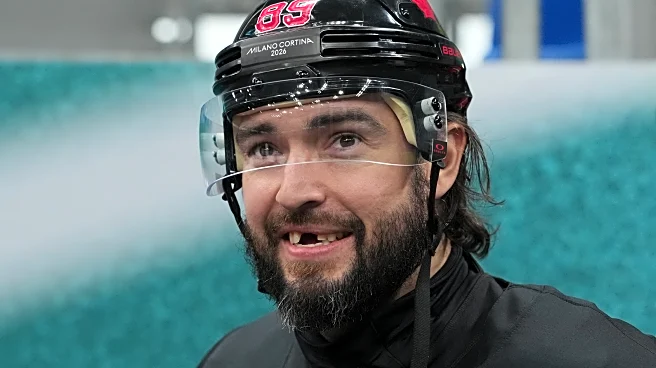What's Happening?
President Donald Trump has committed to assisting Scott Adams, the creator of the 'Dilbert' comic strip, in obtaining treatment for his metastatic prostate cancer. This pledge came after Adams reached
out to Trump via social media, expressing frustration with his healthcare provider, Kaiser Permanente of Northern California, for delays in scheduling his treatment with the drug Pluvicto. Trump responded with a brief social media post stating, 'On it.' Adams, who has been a vocal supporter of Trump, highlighted the urgency of his situation, noting that the treatment could significantly extend his life. Kaiser Permanente has stated that Adams' oncology team is actively working on his case, and since the drug's approval, they have treated over 150 patients with it in Northern California. The White House has not provided further comments on the matter.
Why It's Important?
This development underscores ongoing issues within the U.S. healthcare system, particularly concerning access to timely and necessary treatments. President Trump's involvement highlights the intersection of healthcare and politics, as he has previously criticized the current healthcare system and promised reforms. The situation also reflects the influence of social media in drawing attention to personal healthcare struggles and the potential for high-profile figures to impact individual cases. For Adams, the outcome of this intervention could be life-altering, while for the broader public, it raises questions about the accessibility and efficiency of healthcare services in the U.S.
What's Next?
The next steps involve monitoring the response from Kaiser Permanente and any further actions from the White House or President Trump. There may be increased scrutiny on how healthcare providers manage treatment schedules and the role of political figures in influencing healthcare decisions. Additionally, this case could prompt discussions on healthcare policy reforms, especially regarding the approval and distribution of life-saving drugs like Pluvicto.
Beyond the Headlines
This situation also touches on ethical considerations regarding the influence of personal connections and public appeals in accessing healthcare. It raises questions about equity in healthcare access and whether similar interventions would be available to individuals without high-profile connections. Furthermore, the case may influence public perception of the healthcare system's responsiveness and the role of government in personal health matters.










